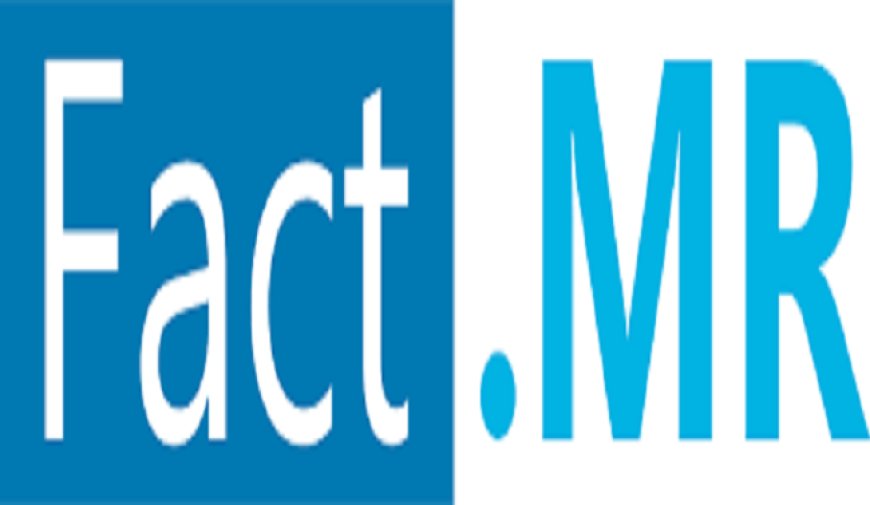Europe Plastic Recycling Machine Market Size: Global Industry Analysis by Fact MR
The Europe plastic recycling machine market is expected to be valued at US$ 450.3 million in 2023 and grow at a CAGR of 3.7%, reaching US$ 650.2 million by 2033.

The Europe plastic recycling machine market is expected to be valued at US$ 450.3 million in 2023 and grow at a CAGR of 3.7%, reaching US$ 650.2 million by 2033.
The Europe plastic recycling machine market has experienced a notable surge in recent years, driven by an increased emphasis on sustainability, environmental protection, and the growing demand for recycled plastic products. Plastic recycling machines play a vital role in the processing and repurposing of plastic waste into reusable raw materials, thereby reducing the burden on landfills and helping conserve valuable resources. The market is bolstered by strict regulatory frameworks across Europe that promote recycling, such as the European Union's waste management directives, which encourage the reduction of plastic waste and enhance the collection, sorting, and recycling of plastics. With rising consumer awareness regarding the environmental impact of plastic waste, the market for plastic recycling machines in Europe is poised for continued growth.
Want Full Report? Enquire Here-https://www.factmr.com/report/europe-plastic-recycling-machine-market
Market Insights
The European plastic recycling machine market is characterized by several key trends and developments. One major factor driving the market is the technological advancements in recycling machinery that enable more efficient sorting, cleaning, and processing of plastic waste. Innovations such as advanced shredders, granulators, and extruders have improved the overall efficiency and productivity of recycling plants, making the recycling process more cost-effective. Additionally, the demand for recycled plastic materials in various industries, including automotive, packaging, and construction, is increasing as companies strive to meet sustainability goals and reduce their environmental footprint. These developments highlight the importance of plastic recycling in the circular economy, where materials are reused and recycled rather than discarded.
Market Outlook
The outlook for the Europe plastic recycling machine market is optimistic, as recycling continues to play a central role in addressing the region's waste management challenges. Government initiatives, such as extended producer responsibility (EPR) schemes and mandates for higher plastic recycling rates, are expected to drive further investment in recycling infrastructure and technologies. Moreover, as the European Union pushes forward with ambitious recycling targets, the need for advanced plastic recycling machines will continue to grow. The market is also witnessing the emergence of automated and AI-powered solutions that improve sorting accuracy and reduce human intervention, further streamlining the recycling process. As a result, the market is likely to see sustained growth in the coming years, particularly as both public and private sectors increase their focus on sustainable waste management practices.
List of Key Companies Profiled in The Report
- GENIUS MACHINERY
- Aceretech Machinery Co., Ltd
- EREMA Engineering Recycling Maschinen und Anlagen Ges.m.b.H
- Next Generation Recyclingmaschinen GmbH
- Others
Recent Industry News
In recent industry news, several developments in the European plastic recycling machine market have highlighted the industry's commitment to sustainability. One key trend is the increasing integration of automation and digital technologies in recycling processes. Companies are investing in AI and machine learning-based sorting systems that improve the accuracy of plastic waste sorting and reduce contamination, enhancing the overall efficiency of recycling plants. Additionally, there have been numerous collaborations and joint ventures aimed at improving plastic waste collection and processing capabilities. For example, several European recycling companies have partnered with waste management firms to implement closed-loop systems for plastic packaging, ensuring that materials are recycled back into production cycles. The growing number of innovations in plastic recycling technology is enabling companies to scale their operations and meet stricter regulatory requirements in the region.
Notable Developments
Notable developments in the Europe plastic recycling machine market have focused on improving the efficiency and sustainability of recycling operations. Companies are investing heavily in research and development to create more advanced recycling machines that can handle a wider variety of plastic waste and operate more efficiently. For instance, new high-speed extrusion systems and washing technologies are being developed to reduce energy consumption and improve the quality of recycled plastic. Additionally, European manufacturers are increasingly turning to modular recycling systems that can be easily scaled or customized based on the specific needs of recycling plants. These advancements are helping to address challenges such as contamination in plastic waste, which has long been a barrier to efficient recycling. Furthermore, the introduction of closed-loop systems that allow plastic products to be continuously recycled without degrading in quality is one of the most significant developments in the market. These innovations position the Europe plastic recycling machine market for long-term growth, as both industry players and governments work together to create a more sustainable waste management ecosystem.
Competitive Landscape
Market players are employing a mix of organic and inorganic strategies to meet end-user needs and increase their market share, thereby boosting profit margins. The customization of products and integration of advanced technology are key factors driving market growth and revenue generation. Additionally, establishing long-term trade relationships with governments and domestic plastic waste management plants helps manufacturers maintain a competitive edge in the market.












